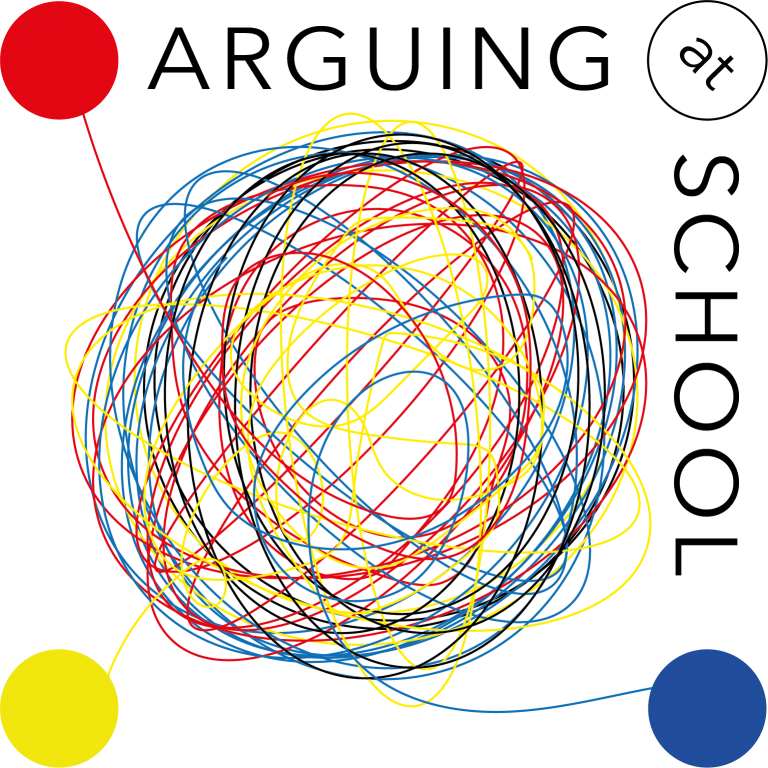
THE PARTNERSHIP
The project “Arguing at School. Psycho-pedagogical Methods to help children (2-18) learn from arguing” is realized within the framework of the ERASMUS + Programme. The Project is coordinated by the CPP – Psycho-pedagogical Center for Peace and Conflict Management in partnership with the Fondation des Régions Européennes pour la Recherche, l’Éducation et la Formation (FREREF), the International Institute of Humanitarian Law (IIHL), the Intro Foundation, the Osnovna škola Ivana Gorana Kovačića Vrbovsko, the Innovate4Future – Centrul pentru Solutii Educationale Avansate (I4F), the Colegiul National Sfantul Sava, the Relationships are Forever Foundation (RFF) and the Maria Regina College Naxxar Induction Centre.
Schools rarely devote their work to the issue that often teachers react in individual and even emotional ways to children’s quarrels. Generally, they do not think that quarrelling is normal and important in people’s lives and only a few of them know about the practical and theoretical opportunity of learning from quarrels and to argue better.
Childhood quarrels have increasingly become a frequent subject of research and study by the partners involved in developing precise methods and educational tools. Students can learn through quarrels to improve their relational skills and prevent the conflictual incompetence that characterizes violent behaviour.
On the heels of the pedagogist Daniele Novara and his method “Arguing well“, experienced in some Italian schools for children from 2 to 10 years, with quarrels you can learn at all ages. Parents and teachers can discover the dimension of the conflict and quarrel as moments of human relations clearly distinct from violence.
THE PROJECT
The aim of the project is to open a transnational discussion on the theme of quarrels and conflicts between peers, with reference to boys, girls, and teenagers from 2 to 18 years, in the context of their life experiences at school.
What happens when a quarrel occurs between students? How is it perceived by teachers? How do they intervene and to what extent is their intervention the result of a school strategy? Is there a pedagogical method or approach shared by teachers? Who decides and what level of sharing has the choice (class, school)? What are the results and impact? Is there an educational strategy for quarrelling students?
The project’s aim is to fill the void of a generalized absence of a shared pedagogical strategy of reference for teachers, which may allow them to know how to intervene in the event of quarrels between peers at school and simultaneously transform the ordinary experience of a children’s quarrel into an opportunity to learn new skills. Maintaining the centrality of the subjectivity of boys, girls, and teenagers, will accompany them to develop the skills at the base of a functioning democratic life: knowing how to express themselves, listen, put themselves in others’ shoes, identify common problems and interests and to find effective ways to be better together, whether there is a shared agreement, or if there is no “solution” to the conflict. Soft skills can be developed by giving everyone, children and teenagers the opportunity to argue better, in a school context well equipped for those purposes.
ARGUING AT SCHOOL OBJECTIVES
1) Starting a wide transnational discussion on quarrels between peers in European schools and on the absence or presence of pedagogical methods to transform quarrels into learning opportunities.
2) Networking four pilot schools from four EU countries to test different methods, share experiences and elaborate results that will be available free of charge for anyone and able to make evident and document the existence and effectiveness of pedagogical methods, suitable for the management of the class in the event of quarrels and disputes between peers in the entire age group from 2 to 18 years.
3) Networking all the partners to build together a Common Activity Plan that leads to shared results, aimed at making the tested methods more transferable.
4) Including new and diverse stakeholders in the discussion on these issues, including policymakers and parents.
5) Improving the quality of teachers’ training about conflict transformation, the adult’s reaction when children quarrel and the pedagogical methods connected to this issue.
6) Developing methodological guidelines and a Toolkit for teachers to make methods more transferable.
7) Increasing the quality of the educational offer at school, helping adults to prevent the dynamics of exclusion and violent behaviour at school and in communities.
8) Improving student autonomy, decreasing their dependence on adults, too often asked to intervene in their quarrels as judges and improving self-esteem and empowerment, as well as the well-being of the same teachers.
9) Helping to improve intercultural awareness.
